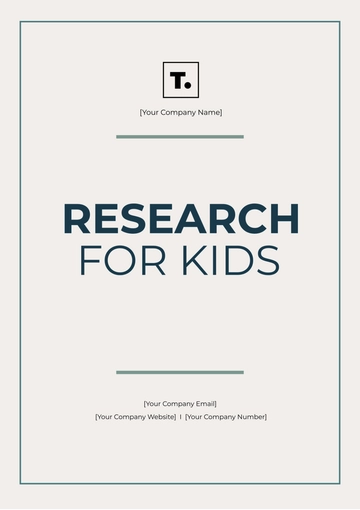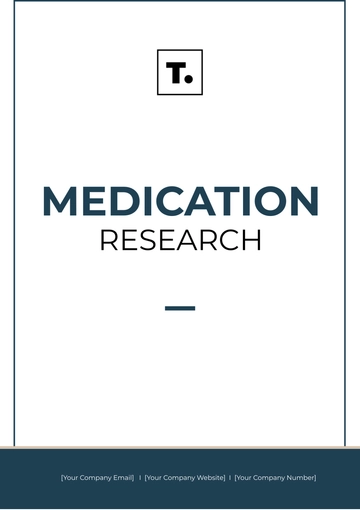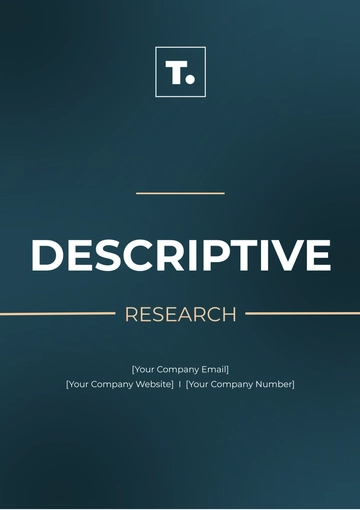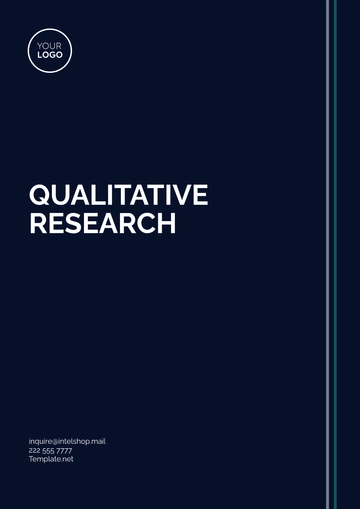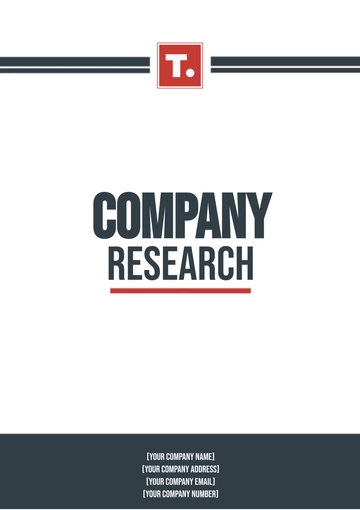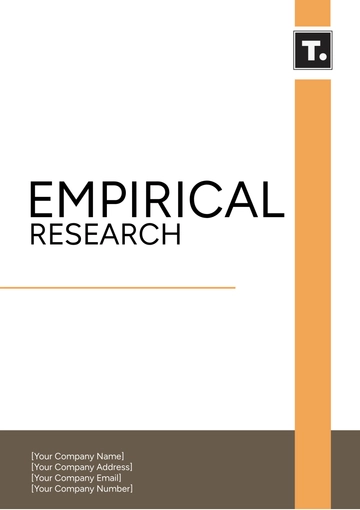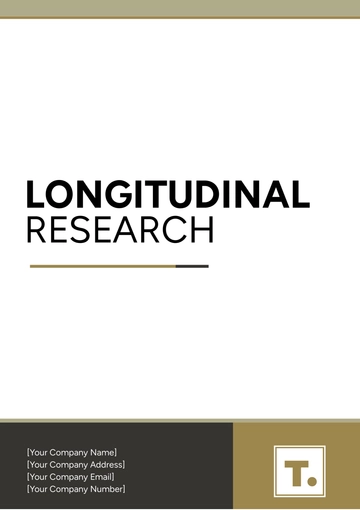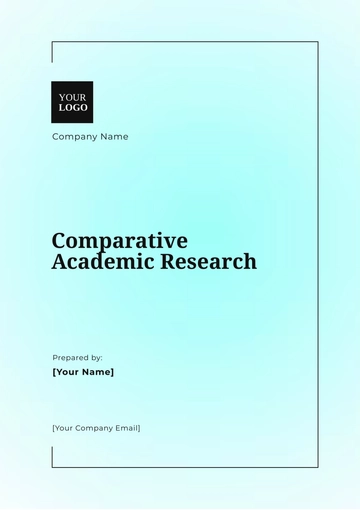Free Research Team Charter
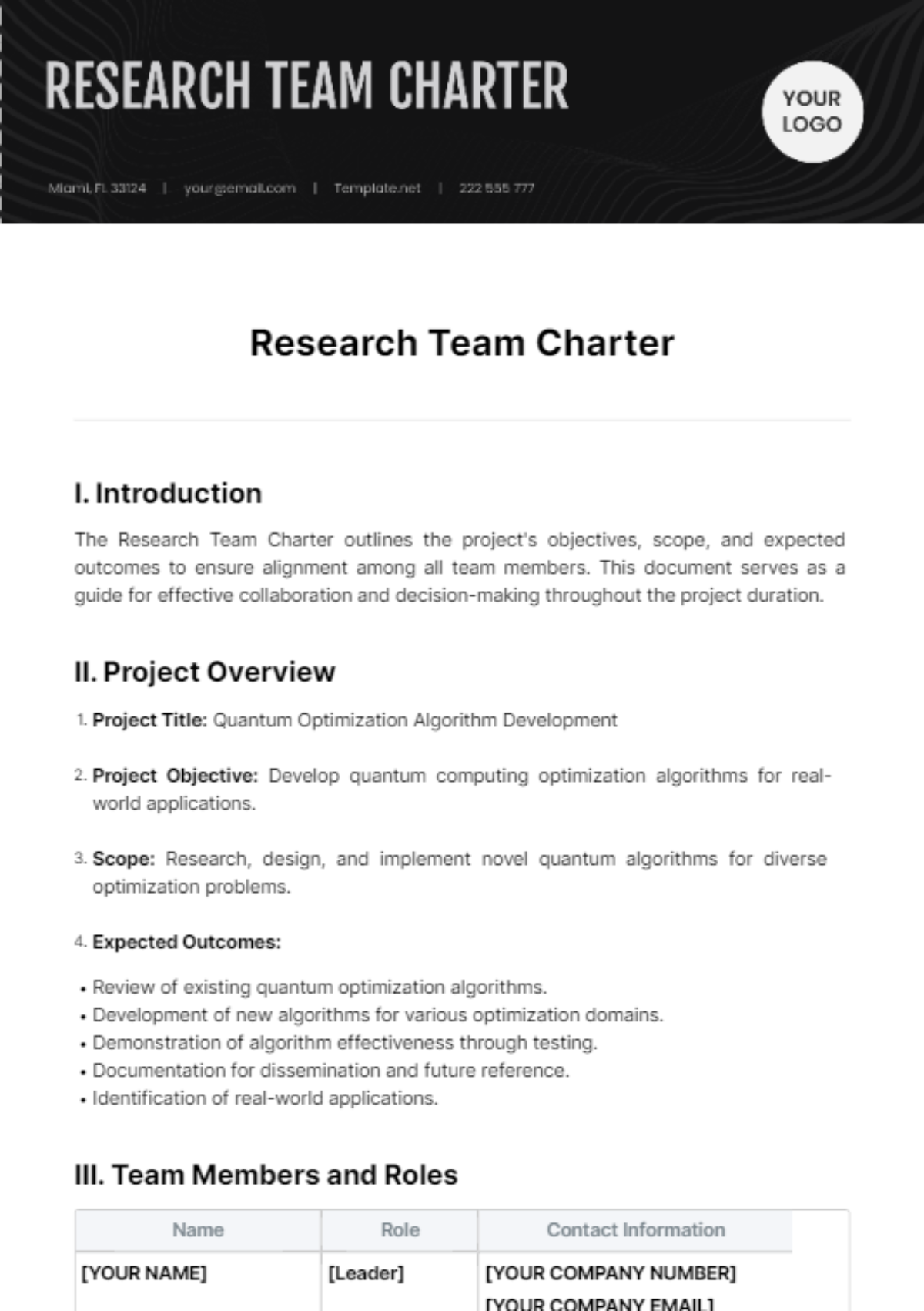
I. Introduction
The Research Team Charter outlines the project's objectives, scope, and expected outcomes to ensure alignment among all team members. This document serves as a guide for effective collaboration and decision-making throughout the project duration.
II. Project Overview
Project Title: Quantum Optimization Algorithm Development
Project Objective: Develop quantum computing optimization algorithms for real-world applications.
Scope: Research, design, and implement novel quantum algorithms for diverse optimization problems.
Expected Outcomes:
Review of existing quantum optimization algorithms.
Development of new algorithms for various optimization domains.
Demonstration of algorithm effectiveness through testing.
Documentation for dissemination and future reference.
Identification of real-world applications.
III. Team Members and Roles
Name | Role | Contact Information |
|---|---|---|
[YOUR NAME] | [Leader] | [YOUR COMPANY NUMBER] |
[TEAM MEMBER NAME 1] | [ROLE] | [EMAIL/PHONE] |
[TEAM MEMBER NAME 2] | [ROLE] | [EMAIL/PHONE] |
IV. Roles and Responsibilities
Team Leader/Manager:
Coordinate and oversee all project activities.
Ensure adherence to project timelines and deliverables.
Facilitate communication among team members and stakeholders.
Team Members:
Contribute expertise and insights relevant to their roles.
Complete assigned tasks within specified deadlines.
Collaborate with team members to achieve project objectives.
V. Project Objectives and Key Results (OKRs)
Objective 1: [State the first objective]
Key Results:
Design prototype specs by [Date].
Test prototype, achieving 95% functionality.
Gather user feedback from 3 sessions, rating satisfaction at 4/5.
Objective 2: [State the second objective, if applicable]
Key Results:
Identify target segments, and assess size.
Analyze competitors for gaps.
Develop a marketing strategy with clear positioning
VI. Project Timeline
Start Date: [Insert start date]
End Date: [Insert end date]
Milestones: [List key milestones and their respective deadlines]
VII. Communication Plan
Channels: [Specify communication channels to be used (e.g., email, Slack, meetings)]
Frequency: [Outline how often team communication will occur]
Reporting Structure: [Clarify reporting lines and escalation procedures]
VIII. Decision-Making Process:
Authority: Decision-making authority resides with:
Team Leader/Manager for strategic decisions.
Subject Matter Experts (SMEs) for domain-specific decisions.
Team Members for operational decisions within their roles.
Consensus Building: Consensus is reached through:
Open dialogue and discussion.
Active listening and respect for diverse viewpoints.
Compromise and finding common ground.
Consensus check and escalation to the team leader/manager if needed.
IX. Conflict Resolution:
Process: [Outline the steps for resolving conflicts within the team]
Mediation: [Specify if external mediation will be sought if internal resolution is not possible]
X. Resource Allocation:
Budget: [Specify budget allocation and any spending constraints]
Equipment/Resources: [Identify necessary equipment and resources and how they will be obtained]
XI. Performance Evaluation:
Criteria: [Define criteria for evaluating individual and team performance]
Frequency: [Specify how often performance evaluations will occur]
XII. Signatures
Each team member acknowledges and agrees to the terms outlined in this charter by signing below:
Name | Date Signed | Signature |
|---|---|---|
[YOUR NAME | [DATE] |
|
[TEAM MEMBER NAME 1] | [DATE] |
|
[TEAM MEMBER NAME 2] | [DATE] |
|
This Research Team Charter ensures that all team members are aligned with the project's objectives, scope, and expected outcomes, fostering collaboration and productivity throughout the project lifecycle.
- 100% Customizable, free editor
- Access 1 Million+ Templates, photo’s & graphics
- Download or share as a template
- Click and replace photos, graphics, text, backgrounds
- Resize, crop, AI write & more
- Access advanced editor
Introducing the Research Team Charter Template by Template.net: Your essential tool for seamless collaboration. Crafted with precision, this editable and customizable template streamlines project planning. Whether outlining objectives or defining roles, its flexibility ensures adaptability to diverse projects. Plus, it's seamlessly editable in our Ai Editor Tool, empowering your team to excel with ease.




